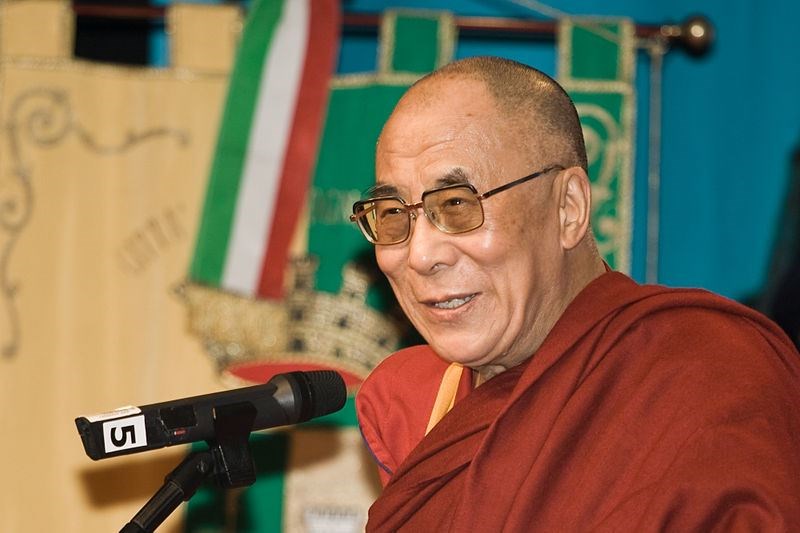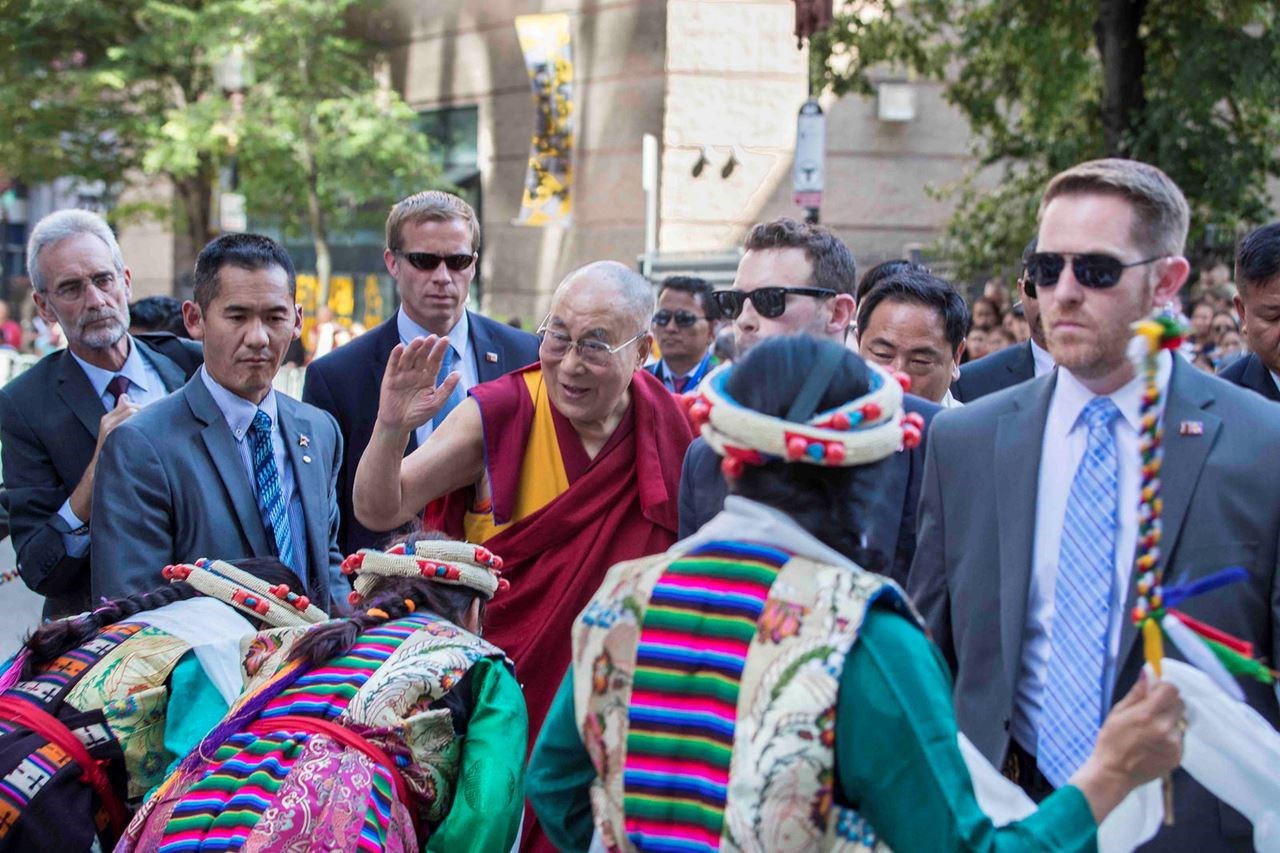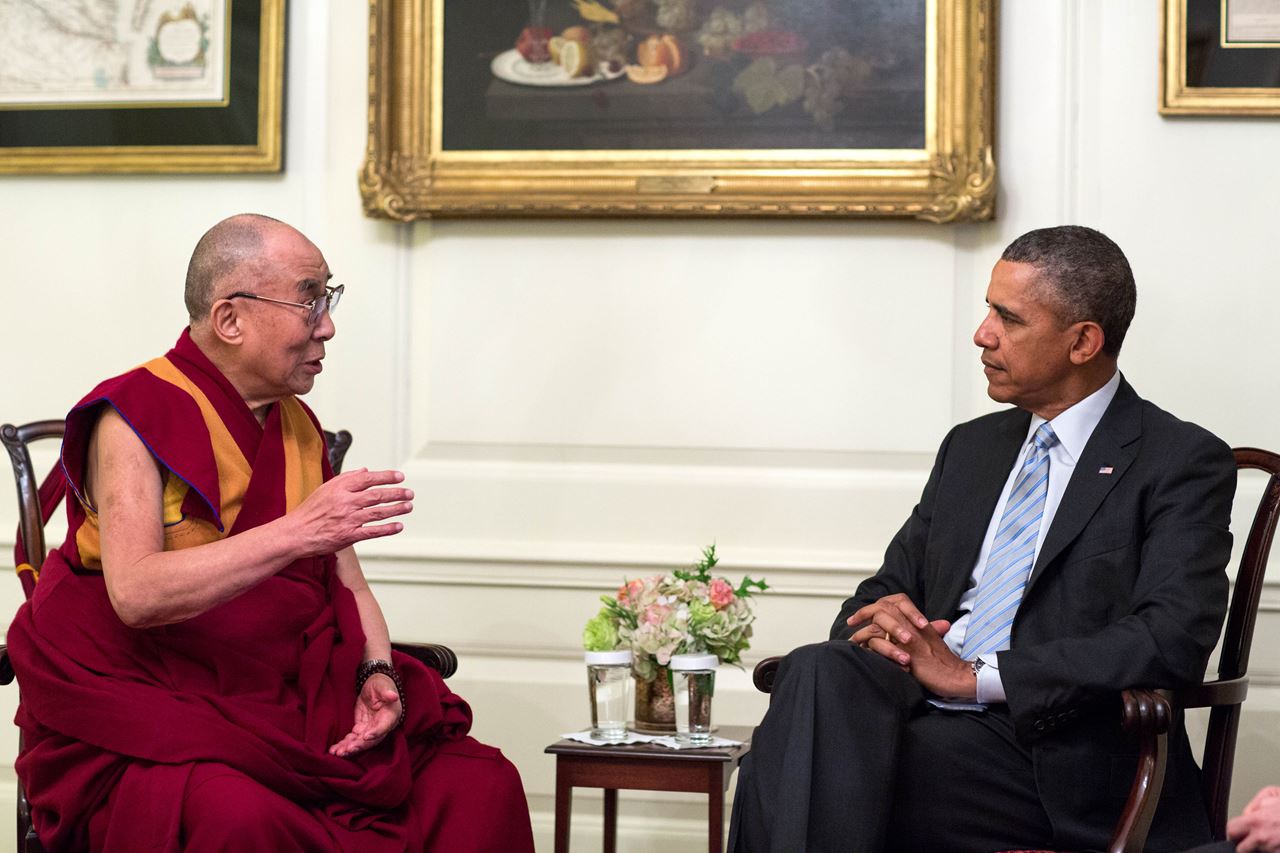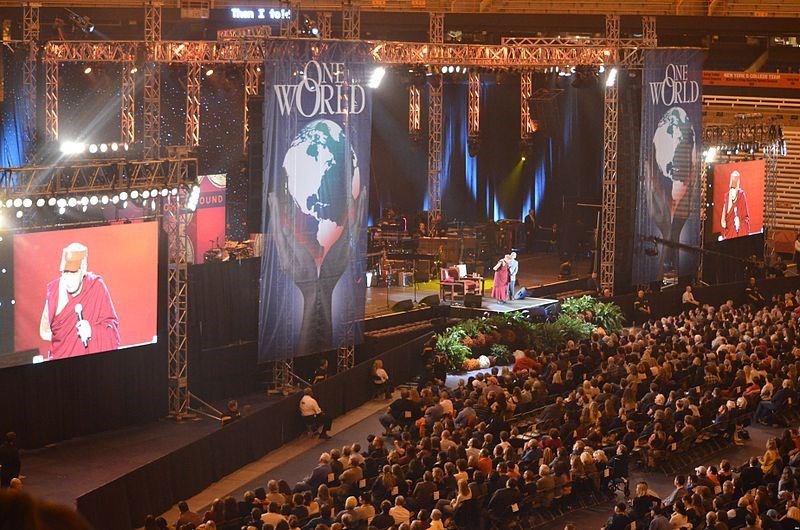It is under the greatest adversity that there exists the greatest
potential for doing good, both for oneself and others.
 Tenzin Gyatso, the 14th Dalai Lamahttps://commons.wikimedia.org/wiki/File:Dalai_Lama_1430_Luca_Galuzzi_2007.jpg
Tenzin Gyatso, the 14th Dalai Lamahttps://commons.wikimedia.org/wiki/File:Dalai_Lama_1430_Luca_Galuzzi_2007.jpg
Oliver Stone once wrote, “The simple acts of heroism are often overlooked—that’s very clear to me not only in war but in peace” (Stone). While single-handedly taking down a mob of criminals may be heroic, we as a society tend to flock to ostentatious displays of heroism while disregarding the smaller acts. Although the smaller acts of heroism may not be as glorious, in modern times, it is the small things that make a difference and that profoundly affect the moral fabric of our society. In fact, the most impactful acts of heroism generally begin with an altruistic initial dedication to the smaller details. Over time, those small, consistent, and selfless gestures of heroism culminate in a genuinely heroic achievement, as contrasted with a single tinselly deed. It is essential to acknowledge authentic heroism in our society in order to emulate truly deserving figures in our lives, rather than ignorantly idolize flamboyant exhibitions of fame or power. Indeed, Harper agrees, “The wrong choice of heroes can split the nucleus of the human family and can set off a veritable chain reaction of sexism, racism, hate, violence, greed, jealousy, resentment and corruption” (Harper). In modern society, heroism is ubiquitous in our daily lives, although it is often overlooked in favor of extravagant displays. Rather, true heroism is defined by constantly devoting one’s time and effort towards a good cause. Through that steadfastness, several key traits of a hero become evident, with wisdom, courage, and honesty among them. But the most critical two facets of heroism are undoubtedly determination and selflessness: determination, as displayed through consistent hard work, and selflessness, as displayed through working for the sake of others, rather than for one’s own benefit. Thus, an authentic hero relentlessly pursues his goals while always prioritizing the needs of others over his own personal wants.
 The Dalai Lama greeting visitors in Bostonhttps://www.flickr.com/photos/statedeptdss/40938025334/The person who best exemplifies the virtues of a true hero is the Dalai Lama. He demonstrates an unwavering resolve towards his goals, but he also exhibits a self-sacrificing compassion for his peers. The Dalai Lama was born and raised to become the hero of Tibet, but circumstances in his life have shaped his character into the global hero that we must commend today. Born in Takster, Tibet, in 1935, the Dalai Lama was originally named Lhamo Thondup. After the death of the 13th Dalai Lama, a search party was deployed to find his next incarnation. Signs pointed the group to Thondup's village, where he was recognized as the appropriate reincarnation. At five years old, he was taken to the capital of Tibet and officially installed as the 14th Dalai Lama, becoming the spiritual and political leader of Tibet and taking the name of Tenzin Gyatso. However, when he was only 15, the Chinese army invaded Tibet, throwing the Dalai Lama in danger for his life. His followers begged him to flee to India, where he lived in exile in Dharamsala since 1960, tirelessly laboring to alert the world to his nation’s plight. Identical to a true hero, the Dalai Lama has single-mindedly pursued the goal of Tibetan freedom through immeasurable adversity. Furthermore, he has ceaselessly toiled on the behalf of his people, disregarding any potential personal benefits. His exemplary virtues are genuinely worthy of accolade. Indeed, the Dalai Lama represents the spirit of modern heroism, transforming him into a shining light in the darkness of the world. He illustrates the qualities that are the crux of the true heroism that we, as a society, require during our most trying times. Not only does he possess an indomitable spirit, unyielding resolve and steadfast determination regarding his goals, but he also embodies the crucial human values of selflessness and altruism; therefore, the Dalai Lama is a true hero and an inspiration to all of us in society.
The Dalai Lama greeting visitors in Bostonhttps://www.flickr.com/photos/statedeptdss/40938025334/The person who best exemplifies the virtues of a true hero is the Dalai Lama. He demonstrates an unwavering resolve towards his goals, but he also exhibits a self-sacrificing compassion for his peers. The Dalai Lama was born and raised to become the hero of Tibet, but circumstances in his life have shaped his character into the global hero that we must commend today. Born in Takster, Tibet, in 1935, the Dalai Lama was originally named Lhamo Thondup. After the death of the 13th Dalai Lama, a search party was deployed to find his next incarnation. Signs pointed the group to Thondup's village, where he was recognized as the appropriate reincarnation. At five years old, he was taken to the capital of Tibet and officially installed as the 14th Dalai Lama, becoming the spiritual and political leader of Tibet and taking the name of Tenzin Gyatso. However, when he was only 15, the Chinese army invaded Tibet, throwing the Dalai Lama in danger for his life. His followers begged him to flee to India, where he lived in exile in Dharamsala since 1960, tirelessly laboring to alert the world to his nation’s plight. Identical to a true hero, the Dalai Lama has single-mindedly pursued the goal of Tibetan freedom through immeasurable adversity. Furthermore, he has ceaselessly toiled on the behalf of his people, disregarding any potential personal benefits. His exemplary virtues are genuinely worthy of accolade. Indeed, the Dalai Lama represents the spirit of modern heroism, transforming him into a shining light in the darkness of the world. He illustrates the qualities that are the crux of the true heroism that we, as a society, require during our most trying times. Not only does he possess an indomitable spirit, unyielding resolve and steadfast determination regarding his goals, but he also embodies the crucial human values of selflessness and altruism; therefore, the Dalai Lama is a true hero and an inspiration to all of us in society.
 The Dalai Lama meeting with President Obama in 2014https://commons.wikimedia.org/wiki/File:Barack_Obama_and_the_Dalai_Lama_in_2014.jpgThe Dalai Lama demonstrates relentless determination when pursuing Tibetan freedom, defying countless hardships and constant opposition from the world. The Dalai Lama gives many speeches on the world stage in order to advocate for his people and to spread his message to the largest possible audience. However, recent developments have jeopardized this international platform that he occupies and relies upon: “The economic potency of China has made the Dalai Lama a political liability for an increasing number of world leaders, who now shy away from him for fear of inviting China’s wrath… And yet here he was in his crimson robes” (New York Times). Due to China’s global strength, world leaders are refusing the Dalai Lama support for his righteous mission. Yet the Dalai Lama still perseveres. He continues to make appearances “in his crimson robes,” thus disseminating his primary message of Tibetan freedom to the world. With or without international support, he tirelessly chases his goal, embodying the trait of determination. This persistence in the face of opposition makes the Dalai Lama a hero because he will do whatever it takes to achieve his goal. However, despite his iron resolve, the Dalai Lama has not entirely succeeded in his fight to liberate Tibet. He describes his experiences in a speech made before the Nobel Prize Committee: “It is with this in mind that I proposed negotiations between Tibet and China on numerous occasions… Unfortunately, China's leaders have not responded positively to the suggestions we have made, which included important concessions. If this continues we will be compelled to reconsider our position” (Gyatso). The Dalai Lama has presented numerous plans to China, all proposing Tibetan freedom and increased Tibetan rights. However, China has rejected all of them, despite the “concessions” that were made. Rather than giving up, the Dalai Lama simply says that he will have to “reconsider” his position, proving the Dalai Lama’s relentless determination. Instead of allowing himself to be discouraged by these incessant rejections and by these constant setbacks in his pursuit of Tibetan freedom, the Dalai Lama remains focused and resolute on his mission. Despite China’s opposition, he perseveres in his quest for Tibetan freedom. The Dalai Lama is a hero because of his unparalleled determination and perseverance regarding the difficult fight to achieve his objective. In addition, he stays optimistic throughout the struggle, and is always willing to do anything in order to accomplish what is right. The Dalai Lama’s relentless pursuit of his goals, despite immense backlash and innumerable obstacles, is what elevates him to a truly inspirational and unparalleled figure in today’s modern society.
The Dalai Lama meeting with President Obama in 2014https://commons.wikimedia.org/wiki/File:Barack_Obama_and_the_Dalai_Lama_in_2014.jpgThe Dalai Lama demonstrates relentless determination when pursuing Tibetan freedom, defying countless hardships and constant opposition from the world. The Dalai Lama gives many speeches on the world stage in order to advocate for his people and to spread his message to the largest possible audience. However, recent developments have jeopardized this international platform that he occupies and relies upon: “The economic potency of China has made the Dalai Lama a political liability for an increasing number of world leaders, who now shy away from him for fear of inviting China’s wrath… And yet here he was in his crimson robes” (New York Times). Due to China’s global strength, world leaders are refusing the Dalai Lama support for his righteous mission. Yet the Dalai Lama still perseveres. He continues to make appearances “in his crimson robes,” thus disseminating his primary message of Tibetan freedom to the world. With or without international support, he tirelessly chases his goal, embodying the trait of determination. This persistence in the face of opposition makes the Dalai Lama a hero because he will do whatever it takes to achieve his goal. However, despite his iron resolve, the Dalai Lama has not entirely succeeded in his fight to liberate Tibet. He describes his experiences in a speech made before the Nobel Prize Committee: “It is with this in mind that I proposed negotiations between Tibet and China on numerous occasions… Unfortunately, China's leaders have not responded positively to the suggestions we have made, which included important concessions. If this continues we will be compelled to reconsider our position” (Gyatso). The Dalai Lama has presented numerous plans to China, all proposing Tibetan freedom and increased Tibetan rights. However, China has rejected all of them, despite the “concessions” that were made. Rather than giving up, the Dalai Lama simply says that he will have to “reconsider” his position, proving the Dalai Lama’s relentless determination. Instead of allowing himself to be discouraged by these incessant rejections and by these constant setbacks in his pursuit of Tibetan freedom, the Dalai Lama remains focused and resolute on his mission. Despite China’s opposition, he perseveres in his quest for Tibetan freedom. The Dalai Lama is a hero because of his unparalleled determination and perseverance regarding the difficult fight to achieve his objective. In addition, he stays optimistic throughout the struggle, and is always willing to do anything in order to accomplish what is right. The Dalai Lama’s relentless pursuit of his goals, despite immense backlash and innumerable obstacles, is what elevates him to a truly inspirational and unparalleled figure in today’s modern society.
The Dalai Lama devotes his life to selflessly placing goals that will ultimately benefit society over his own personal desires. When more moderate leaders came to power, China extended him the chance to return to Tibet with all of his rights and privileges restored. The Dalai Lama responded empathetically: "‘I told them that this is not the case, the problem is six million people,’ he told Associated Press reporter Jeffrey Ulbrich. ‘It's their rights and their culture. And unless that basic problem is solved, the question of my return is meaningless’" (UXL). The Dalai Lama selflessly refused the offer, prioritizing the Tibetan people over his own desires, as he wanted his people to be secure in their human rights before he even considered returning to his homeland. His self-sacrificing attitude simply proves the altruistic goodness that contributes to his heroism. Rather than just accepting the offer, which would have been in his own best interests, the Dalai Lama maintains that his people’s rights are more important, and instead continues to live in exile so he can freely advocate for the Tibetan people. Moreover, in order to best preserve the interests of the Tibetan people, the Dalai Lama has also stepped down from his position as the political leader of Tibet: “He has further stated that he believes he probably would be ‘an obstacle to developing a genuine democracy in Tibet’ and should therefore remain outside any new government” (UXL). The Dalai Lama abdicates from his position to allow Tibet to grow as a country and for Tibet to ultimately reach democracy in the future. This proves the Dalai Lama’s selflessness, as it shows his willingness to renounce his power as Tibet’s absolute leader in order to help Tibet achieve democracy. But despite sacrificing his political power, the Dalai Lama does not wash his hands of Tibet. Instead, he continues to fight for Tibetan freedom in order to benefit his country, even though he is no longer their leader. He is a hero because he places the good of Tibet over his own political power and he still selflessly cares for the welfare of Tibet, even though he has nothing to gain from doing so. Indeed, true heroes value the welfare of society over their individual selves, a trait that the Dalai Lama possesses. Through his inspirationally self-sacrificing and altruistic attitude, the Dalai Lama has truly become a paragon of selfless heroism in society.
 The Dalai Lama speaks to a crowd at Syracuse Universityhttps://commons.wikimedia.org/wiki/File:Dalai_Lama_at_Syracuse_University_03.jpgThe Dalai Lama is a true hero because he possesses an indomitable spirit, but also because he embodies nonpareil altruism. The Dalai Lama faces adversity and persists through it in order to achieve his goal. Although he is surrounded by opposition, he tenaciously fights on anyway. He will do whatever it takes in order to help his people and to ultimately reach his goal. Not only that, but the Dalai Lama selflessly prioritizes his people over himself. As a true hero, he values the welfare of his people and of society over his individual self. Selflessness is the driving force behind a hero, because one can only become a hero when they make sacrifices for the greater good. The Dalai Lama has devoted his life to educating the world about a good cause, surmounting significant obstacles to do so. Above all, he has been fighting for his underrepresented, unheard nation to receive justice.
The Dalai Lama speaks to a crowd at Syracuse Universityhttps://commons.wikimedia.org/wiki/File:Dalai_Lama_at_Syracuse_University_03.jpgThe Dalai Lama is a true hero because he possesses an indomitable spirit, but also because he embodies nonpareil altruism. The Dalai Lama faces adversity and persists through it in order to achieve his goal. Although he is surrounded by opposition, he tenaciously fights on anyway. He will do whatever it takes in order to help his people and to ultimately reach his goal. Not only that, but the Dalai Lama selflessly prioritizes his people over himself. As a true hero, he values the welfare of his people and of society over his individual self. Selflessness is the driving force behind a hero, because one can only become a hero when they make sacrifices for the greater good. The Dalai Lama has devoted his life to educating the world about a good cause, surmounting significant obstacles to do so. Above all, he has been fighting for his underrepresented, unheard nation to receive justice.
The Dalai Lama’s example of resilience through adversity has inspired me as well. By nature, I am a shy and introverted person. However, I have always been a fervent believer in intersectional equality as well. Before I stumbled upon the Dalai Lama’s story, I could never properly express my views and make a profound difference without being choked by the grip of anxiety. Similarly, the Dalai Lama’s life has been hard. Both of us have faced adversity, yet he has overcome it in order to fight towards one altruistic goal. His paradigm taught me how to persevere and how to face my own struggles in order to discover the true significance of life. He influenced me to join the speech and debate team, creating a chance for my voice to finally be heard. Although the future seems unclear, one thing in my life is certain. The Dalai Lama has set a precedent for me and for others, giving me the courage and confidence to pursue my goals and to advocate for a cause that I care about. Similar to the Dalai Lama, I will be fighting for equality for the rest of my life. But the main reason why the Dalai Lama is my inspiration is because he has proven to the world that it is the simplest things in life that truly count. The Dalai Lama has no crowning achievement to his life, but rather, an immense collection of moments of kindness and of short yet compassionate speeches, exemplifying how an initial small action towards a goal can culminate in a truly great deed, worthy of the title “heroic”. This makes him a genuine inspiration to us all. We can follow his example to overcome trauma and tragedy and find a selfless goal to fight towards and to give our lives meaning. Like the Dalai Lama, we can all make a difference in the world, no matter what our background is or what we have faced. As Stone once wrote, “The simple acts of heroism are often overlooked” (Stone). Indeed, the simple acts of heroism are often overlooked in our daily lives. But the Dalai Lama has presented those same simple acts of heroism on the world stage and has proven to us all that society does not need theatrical displays of power or strength to improve. Instead, all society really needs is the little things. By doing so, the Dalai Lama has taught us to appreciate the little traits that make us all unique. He has taught us to recognize the little acts of heroism. And most importantly, he has taught the world that each and every one of us can be a hero in our own little way.
Works Cited
"Dalai Lama." DISCovering Biography, Gale, 2003. Student Resources In Context, https://link.galegroup.com/apps/doc/EJ2102100445/SUIC?u=powa9245&sid=SUIC&xid=633f1503. Accessed 19 Dec. 2018.
"Dalai Lama." UXL Biographies, UXL, 2011. Student Resources In Context, https://link.galegroup.com/apps/doc/EJ2108100576/SUIC?u=powa9245&sid=SUIC&xid=cc3f00fd. Accessed 21 Dec. 2018.
Gyatso, Tenzin. Nobel Prize Acceptance Speech. Nobel Foundation. University Aula, Oslo. 10 Dec. 1989.
Harper, Charles F. “How Should We Choose a Hero?” The MY HERO Project, myhero.com/Forums. Accessed 16 Jan. 2019.
Mishra, Pankaj. “The Last Dalai Lama?” The New York Times, The New York Times, 1 Dec. 2015, www.nytimes.com/2015/12/06/magazine/the-last-dalai-lama.html. Accessed 3 Jan. 2019.
Stone, Oliver. “Where I Find My Heroes”. McCall’s. Nov. 1992. Web. Accessed 15 Jan. 2019.
“Tenzin Gyatso, the 14th Dalai Lama.” Biographies for International Security, Apr. 2011, p. 3. EBSCOhost, https://web.b.ebscohost.com/brc/detail?vid=0&sid=aa6254d6-ee5e-4a29- bcdb-f68abcf5bed7%40pdc-v-sessmgr06&bdata=JnNpdGU9YnJjLWxpdmU%3d#db=b6h&AN=31519457. Accessed 3 Jan. 2019.
Page created on 2/12/2019 6:34:15 AM
Last edited 4/21/2019 11:05:15 PM
